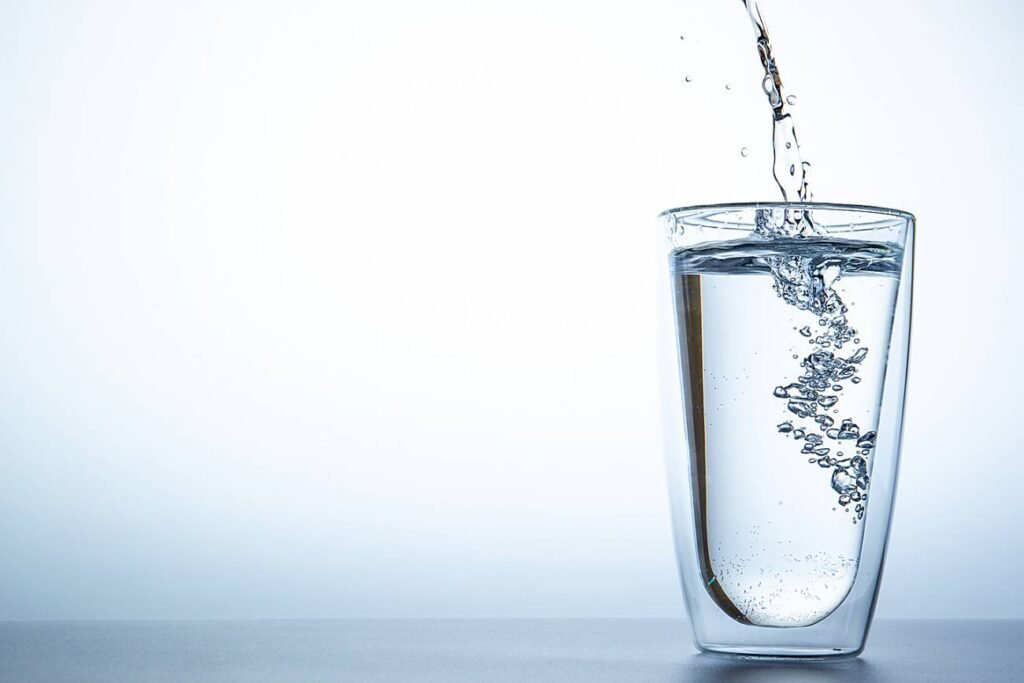
It’s common knowledge that drinking water can help with weight loss. One widely held belief is that consuming water prior to meals will reduce appetite and aid in weight loss. We’ll examine the research underlying this assertion and see if it holds water in this blog.
Contents
The Theory behind It
Water consumption prior to meals is recommended for weight loss for a number of reasons. First of all, since water has no calories, consuming it before meals can make you feel fuller and cause you to eat less. Additionally, drinking enough of water can assist avoid overeating because thirst is sometimes confused with appetite?
Scientific Studies
Water consumption prior to meals has been the subject of numerous research regarding its impact on weight loss. According to a study that was published in the journal Obesity, drinking water before meals reduced calorie consumption over the course of a 12-week period, resulting in a slight loss of weight. Another study indicated that drinking water before breakfast enhanced metabolism by around 30% for 30 to 40 minutes. This study was also published in the Journal of Clinical Endocrinology and Metabolism.
How Much Water to Drink
You should drink varying amounts of water before meals. To aid in weight loss, some experts advise consuming roughly 16 ounces (500 ml) of water half an hour before meals. Individual requirements could differ, therefore it’s crucial to pay attention to your body’s cues and sip water when you feel thirsty.
Other Benefits of Drinking Water
Beyond aiding in weight loss, water consumption offers several other advantages. It supports appropriate hydration, which is critical for general health and physiological processes. In addition, water promotes healthy digestion, detoxification, and skin care.
Tips for Drinking More Water
If you have trouble remembering to drink enough water, consider carrying a water bottle about with you all day. To add extra taste and enjoyment, you can add fruits or herbs to your water. Eating meals high in water, such fruits and vegetables, can also aid in maintaining proper hydration.
Conclusion
Water is not a miracle cure, but it can help you eat less and lose weight before meals. It is only a small portion of a healthy lifestyle that also consists of frequent exercise and a balanced food. For general health, it’s crucial to be hydrated, so pay attention to your body’s thirst signals and sip water.
Frequently Asked Questions about Drinking Water before Meals and Weight Loss
Q: How much water should I drink before meals to aid weight loss?
A: To aid in weight loss, some experts advise consuming roughly 16 ounces (500 ml) of water half an hour before meals. Individual requirements could differ, therefore it’s crucial to pay attention to your body’s cues and sip water when you feel thirsty.
Q: Does drinking water before meals really help you lose weight?
A: Water is not a miracle cure, but it can help you eat less and lose weight before meals. It is only a small portion of a healthy lifestyle that also consists of frequent exercise and a balanced food.
Q: Can I drink other beverages besides water before meals for weight loss?
A: The best beverage to stay hydrated is water because it has no calories. You can also have other fluids before meals, such unsweetened tea or coffee, but it’s best to stay away from sugary and calorie-dense beverages.
Q: Are there any risks associated with drinking water before meals?
A: For the most part, most people can safely consume water before meals. On the other hand, consuming excessive amounts of water can cause a potentially hazardous condition known as water intoxication. It’s advisable to pay attention to your body’s thirst signals and consume water in moderation.
Q: Can drinking water before meals help with other health issues besides weight loss?
A: Yes, maintaining proper hydration can benefit digestion, skin health, and the removal of toxins from the body in addition to being crucial for general health. Water consumption prior to meals may also facilitate digestion and assist avoid overindulging.